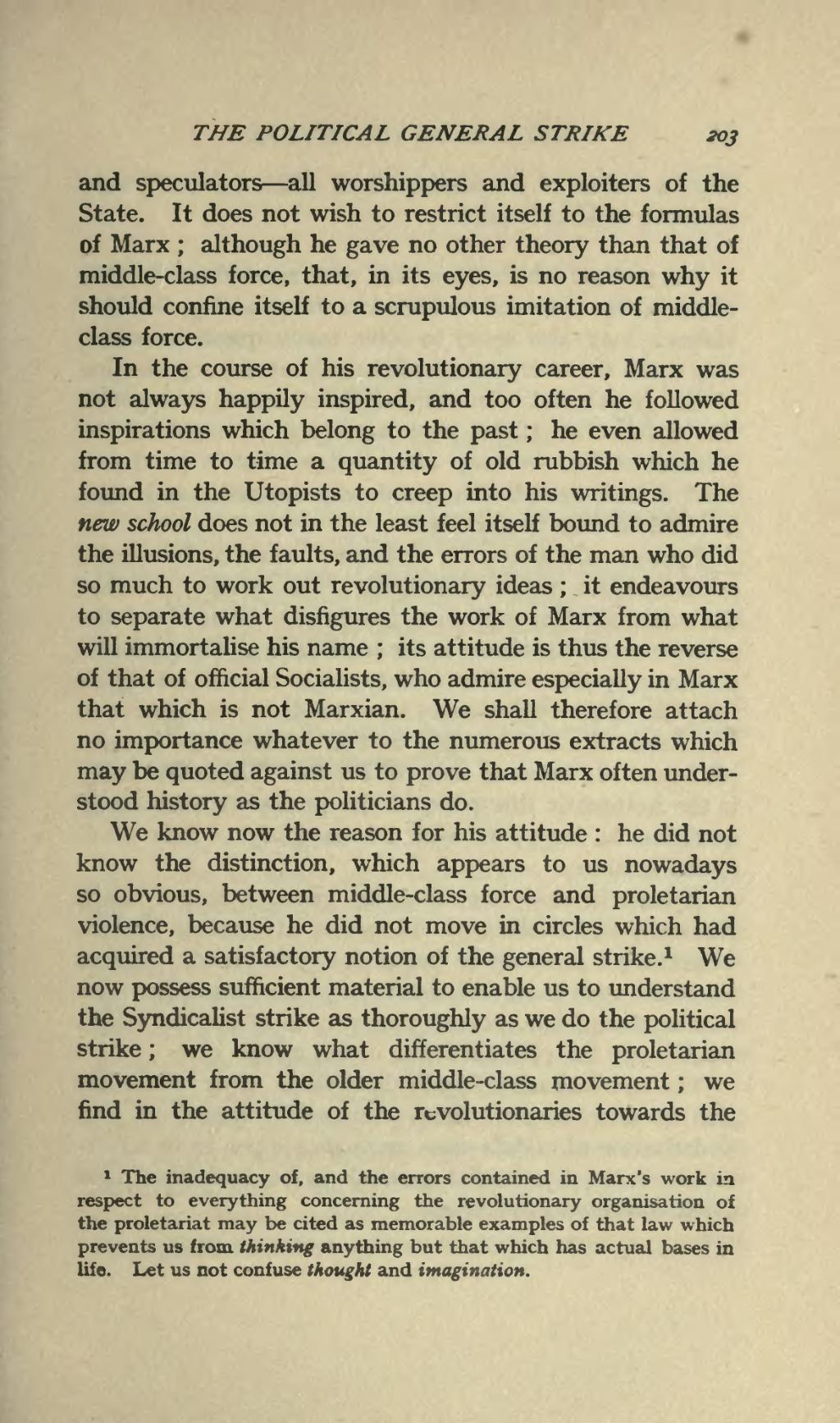and speculators—all worshippers and exploiters of the State. It does not wish to restrict itself to the formulas of Marx; although he gave no other theory than that of middle-class force, that, in its eyes, is no reason why it should confine itself to a scrupulous imitation of middle-class force.
In the course of his revolutionary career, Marx was not always happily inspired, and too often he followed inspirations which belong to the past; he even allowed from time to time a quantity of old rubbish which he found in the Utopists to creep into his writings. The new school does not in the least feel itself bound to admire the illusions, the faults, and the errors of the man who did so much to work out revolutionary ideas; it endeavours to separate what disfigures the work of Marx from what will immortalise his name; its attitude is thus the reverse of that of official Socialists, who admire especially in Marx that which is not Marxian. We shall therefore attach no importance whatever to the numerous extracts which may be quoted against us to prove that Marx often understood history as the politicians do.
We know now the reason for his attitude: he did not know the distinction, which appears to us nowadays so obvious, between middle-class force and proletarian violence, because he did not move in circles which had acquired a satisfactory notion of the general strike.[1] We now possess sufficient material to enable us to understand the Syndicalist strike as thoroughly as we do the political strike; we know what differentiates the proletarian movement from the older middle-class movement; we find in the attitude of the revolutionaries towards the
- ↑ The inadequacy of, and the errors contained in Marx's work in respect to everything concerning the revolutionary organisation of the proletariat may be cited as memorable examples of that law which prevents us from thinking anything but that which has actual bases in life. Let us not confuse thought and imagination.
